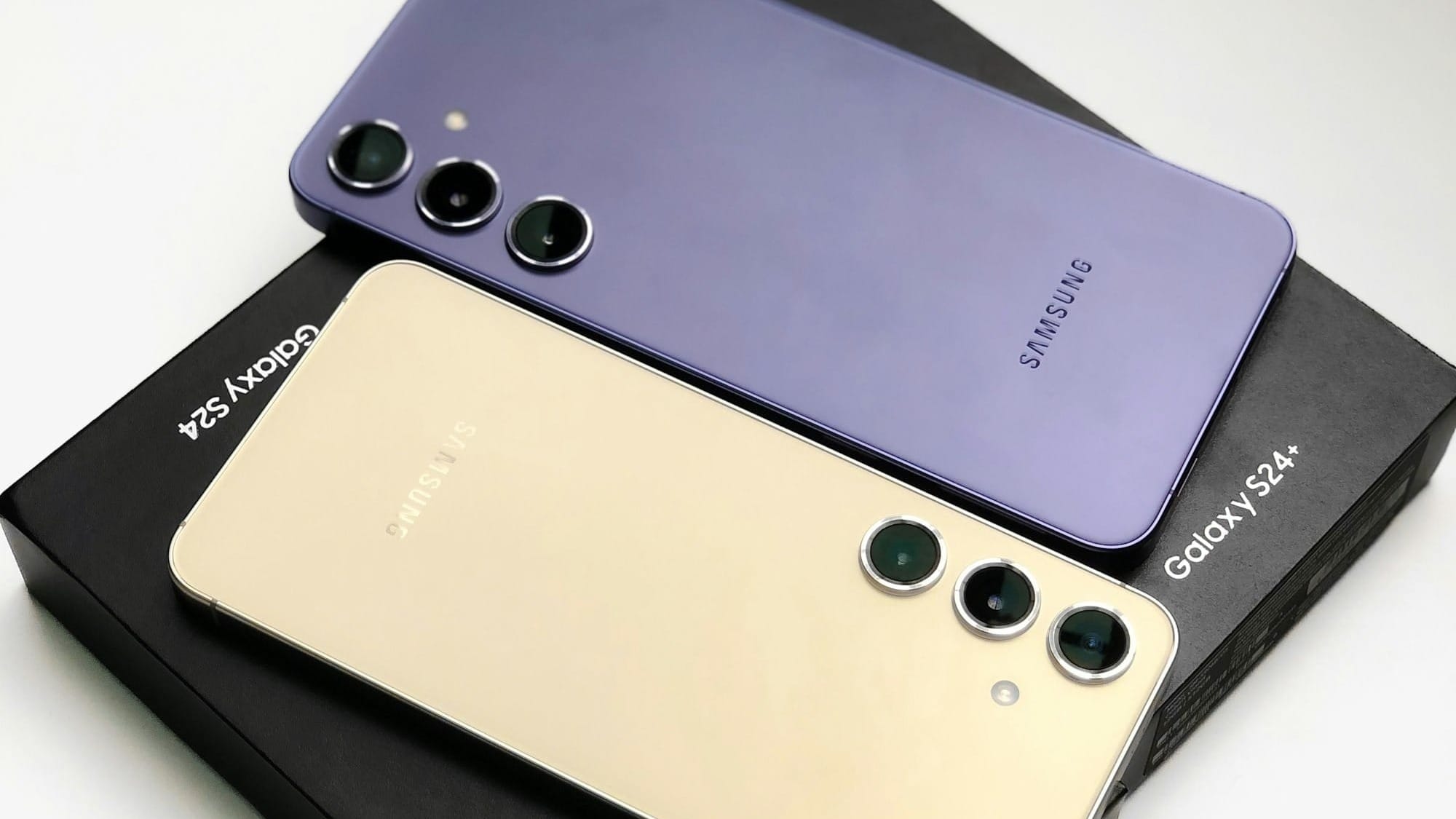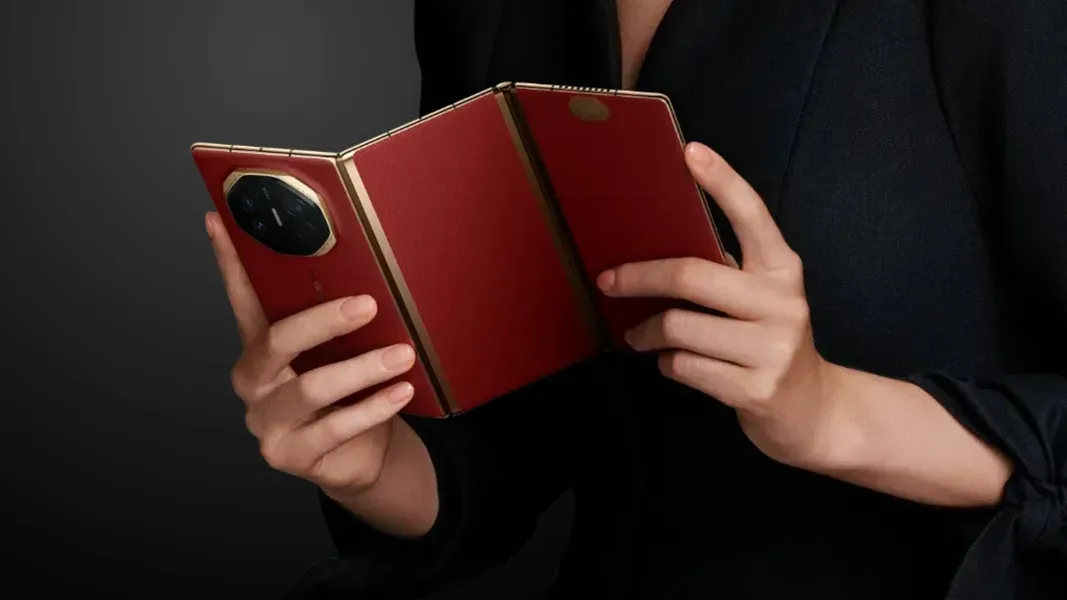Techloy Recap: The biggest hardware releases of 2024
From foldable phones redefining mobility to groundbreaking advancements in AI-powered gadgets, 2024 was a year where hardware innovation truly shone.
This year has been nothing short of transformative for technology. From groundbreaking designs to powerful processors, 2024 showed how hardware can redefine the way we work, play, and connect.
Each major release this year added a unique chapter to the story of innovation, with moments of brilliance and challenges that highlighted the complexities of pushing boundaries in tech.
Techloy's recap spotlights some of the biggest hardware product launches in 2024, focusing on what they meant for the company as well as the general tech space.
Samsung Galaxy S24 series sets the stage

Few devices managed to make as strong a first impression this year as the Galaxy S24 series (S24, S24 Plus, S24 Ultra) which launched in January.
With its Ultra model priced at $1,299, Plus at $999, and the base S24 model at $799, Samsung leaned into AI-powered features like 'Circle to Search', live translation during phone calls, and real-time photo enhancements.
The Galaxy S24 series' Snapdragon 8 Gen 3 processor and the S24 Ultra's 200MP rear camera made it a favourite among performance seekers, but concerns over screen durability tempered some of the excitement. Still, this release wasn’t just about upgrades; it was about Samsung signalling that AI would be the year’s driving force—and they weren't wrong.
Apple Vision Pro dares to dream

By February, Apple entered the mixed-reality space with the Vision Pro headset, a $3,499 device that blended physical and virtual worlds like never before. Boasting high-resolution micro-OLED displays and spatial audio, it promised immersive experiences for everything from productivity to entertainment.
Yet, while its ambition was clear, reports of discomfort during extended use and Apple scaling back the Vision Pro production due to weak demand (likely because to the high price tag) hinted at the difficulties of bringing such advanced, niche tech products to the public.
Apple M4 Chip brings tablets closer to laptops

Then, in May, Apple introduced its "groundbreaking" M4 chip in the new OLED iPad Pro. This chip promised a significant leap in tablet performance thanks to its three-nanometer architecture and improved performance and efficiency cores.

Starting at $999, the OLED iPad Pro was expected to cater to professionals who needed portability without compromising on power. However, its true potential was somewhat constrained by the iPadOS, which struggled to match the versatility of macOS. Overall, though, the M4 chip stood as a testament to Apple’s hardware innovation.
Foldable phones come of age

By mid-year, Samsung’s Galaxy Z Fold 6 and Z Flip6 brought foldable phones firmly into the spotlight at the Galaxy Unpacked 2024 event. Released in July, these devices weren’t just iterations—they were statements.
The $1,899 Z Fold 6 offered a near-seamless transition between phone and tablet, while the $1,099 Z Flip 6 combined portability with style. Additionally, their improved durability and multitasking capabilities addressed long-standing user concerns, but questions about screen longevity and price continued to linger.
These foldables, in general, showed that while the technology has matured, the category still has room to grow.
Google’s Pixel 9 Series reinvents AI on phones

Later in August, Google shifted the conversation with its Pixel 9 series (9, 9 Pro, and 9 Pro Fold) early launch at the Made by Google event. Priced from $799 for the base Pixel 9 model, these phones made AI the star of the show thanks to an integration with Google's Gemini.
Features like Magic Eraser and advanced voice recognition showcased how software could elevate hardware, even in a market dominated by specs. However, a modest battery life starting at 4650mAh and the absence of a telephoto lens meant the Pixel 9 series wasn’t without its compromises.
September‘s innovations break new ground

Interestingly, September was a whirlwind of innovations. For one, Apple’s iPhone 16 series (16, 16 Plus, and 16 Pro) launch at its 'Glowtime' event, saw the start of the company's venture into AI-powered devices thanks to the devices' A18 bionic chip.
Starting at $799 for the base iPhone 16 model and $899 for the Pro, these devices brought Apple Intelligence to the forefront. This addition marked a turning point for the brand, improving everything from image processing to personalized Siri interactions.
However, Apple’s journey wasn’t without challenges, as the iPhone 16 has continued to face regulatory issues in Indonesia. The devices have also struggled sale-wise, selling only 37 million units in the first weekend—a 15% decline compared to the iPhone 15 series from 2023.

Meanwhile, Huawei took a bold step with the Mate XT, the world’s first tri-fold phone and my favourite gadget released this year.
Priced at $2,499, this groundbreaking device powered by the HarmonyOS, unfolds into a 10.2-inch tablet, pushing the boundaries of smartphone functionality.
Its innovative design captured the imagination of many, but the absence of Google services—due to U.S. restrictions on the company—remains a significant drawback and will likely limit its appeal in key markets outside China.

Meta also joined the fray with the unveiling of its Quest 3S VR headset, priced at $299 for the 128GB model. The device promised improved AR passthrough technology and performance at an affordable price that would likely lower the entry barrier for new users in the mixed reality space. But there seems to still be comfort and battery life concerns.
Advanced processors stole the spotlight

By October, the focus had shifted to raw power. Qualcomm’s Snapdragon Elite 8 chip, touted as the world's fastest CPU, set a new benchmark for mobile processors, promising unprecedented energy efficiency and AI capabilities for smartphones.
Meanwhile, Apple wrapped up its M4 lineup with the new M4 Pro MacBook and a much smaller M4 Mac Mini, priced at $1,999 and $699, respectively. These devices combined sleek designs with professional-grade performance, but their high costs raised questions about accessibility.

The company also announced two new chips in October, the M4 Pro and M4 Max along with these devices. The advancements in their processing power highlighted just how foundational chips are to the tech world’s future.
Solos' AirGo Vision smart glasses

Closing the year, the Solos AirGo Vision glasses launched in December, quickly earning attention as an affordable alternative to Meta’s Ray-Ban smart glasses.
Priced significantly lower starting at $149, these glasses provided essential features like hands-free calling, audio playback, and subtle AI capabilities.
Their competitive pricing and functionality highlighted the growing demand for practical smart eyewear, even as the market grapples with adoption challenges.
Final Thoughts
Looking back, 2024 was a year of ambition, innovation, and introspection. These devices weren’t just products—they were milestones, marking a year where the tech industry dared to dream bigger and strive further, despite the challenges they each faced.
I expect more groundbreaking hardware launches in 2025 that’ll build on the foundation laid this year. But I guess time will tell.






